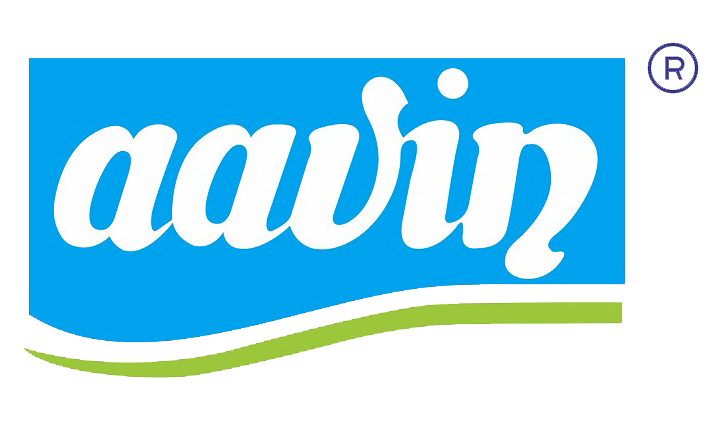Federation Units

NJSF - Ooty
I. INCEPTION
Started at Udhagamandalam on 29.03.1973 under the direct control of the erstwhile Tamil Nadu Dairy Development Corporation, now Tamil Nadu Co-operative Milk Producers’ Federation Limited.
II. LOCATION
Situated in 37.725 acres of land taken on lease from the Forest Department, adjacent to the Gymkhana Club, Ooty and 46.33 acres of land allotted from AH Dept. of Tamil nadu, at Kakkathope, Ooty.
Financial Assistance - The erstwhile Indian Dairy Corporation
Technical Guidance - National Dairy Development Board.
III. DIVISIONS OF THE FARM
1. Stud Farm to maintain genetically superior Jersey, Friesian and Cross-bred bulls
2. a. The Frozen Semen Straws Production laboratory where the neat semen is processed and Frozen semen straws are produced.
b. The Semen Bank – the Frozen semen straws both in quarantine and stock doses of Progeny testing Scheme are stored and transferring the same to the distribution centre at BFSS, Erode for sale mainly to the District Co- operative milk producers unions in Tamilnadu for Artificial Insemination of Cattle.
3. The Quality control Laboratory for conducting various quality assurance tests for Neat and Frozen Semen.
4. The Fodder Farm both in NJSF complex and Kakkathope for fodder production
5. The Administrative Office –The establishment, purchase and stores, accounts related activities are carried out.
IV. OBJECTIVES
- To maintain pedigreed Jersey cattle, to produce genetically superior Jersey Breeding Bulls and Cows.
- To produce Frozen Semen Straws from genetically superior Jersey, Friesian and Cross-bred Bulls and supply the same throughout Tamil Nadu for Artificial Insemination of Cattle.
- To augment milk production in local cattle in the milk sheds of Tamil Nadu under Operation Flood by Cross-breeding through Artificial Insemination using quality Frozen Semen produced from high milk yielding pure-bred and cross-bred bulls with superior germ plasm.
V. QUALITY OBJECTIVES OF NJSF
- Delivery of the Frozen Semen Straws at the right time.
- 100% fulfilling the customer’s quality requirements.
- Ensuring 100% on time deliveries to the specified customers.
- Continuous improvements to ensure minimal wastage in the raw materials, products, packing materials as per the customer’s requirement.
- Ensuring safe, hygienic and health environment for all the employees leading for production of quality Frozen Semen Straw.
- Implementing Good Manufacturing Practices at the semen collection, processing and storage facilities leading to production of quality Frozen Semen Straws.
- Achieving continuous measurable improvement in product, process with target.
Quality Management commitment in all aspects.
VI. SPECIAL ACHIEVEMENTS
The Nucleus Jersey and Stud Farm has been granted the ISO 9002:1994 Quality System Certification by the Bureau of Indian Standards vide License No. QSC/L-008958 with effect from 25-02-2002. Now, the Quality System Certification of ISO 9002:1994 has been upgraded to ISO: 9001:2000 and has been renewed and upgraded to IS: ISO: 9001:2015 up to 24-02-2023 vide renewed License No.QM/L-6001651.6.
This is the second Farm in India to obtain ISO Certification. Among the 13 Farms maintained by the Co-operatives in India, this Farm is the first one to get ISO 9001:2015 Certification. Out of about 65 semen stations evaluated all over India, The Nucleus Jersey Farm was awarded A grade during 2005 , 2007 & 2015 B grade during 2013 and 2018 by the Government of India based on the evaluation carried out by the Central Monitoring Unit constituted by the Department of Animal Husbandry and Dairying, Government of India. The data available in this Farm on semen production, Animal maintenance, Fodder production, trials on new fodder varieties etc. are utilized by Research Scholars and Post-graduate students of Tamil Nadu Veterinary and Animal Sciences University and Tamil Nadu Agricultural University.
OVERALL BENEFITS TO FARMING COMMUNITY
- The NJSF aims to produce high quality disease free semen doses which through proper AI Delivery will bring about a steady improvement in productivity in the cross-bred cattle. It would lead to an improvement in the overall quality of dairy animals in the country.
- The benefit of higher productivity in the form of milk and better progeny will percolate to the resource poor rural farmers at large. This will enable the farmers to get a better return for their milk.
- There will also be an increase in employment opportunities at the semen station as more manpower would be required to handle the increase in semen production.


